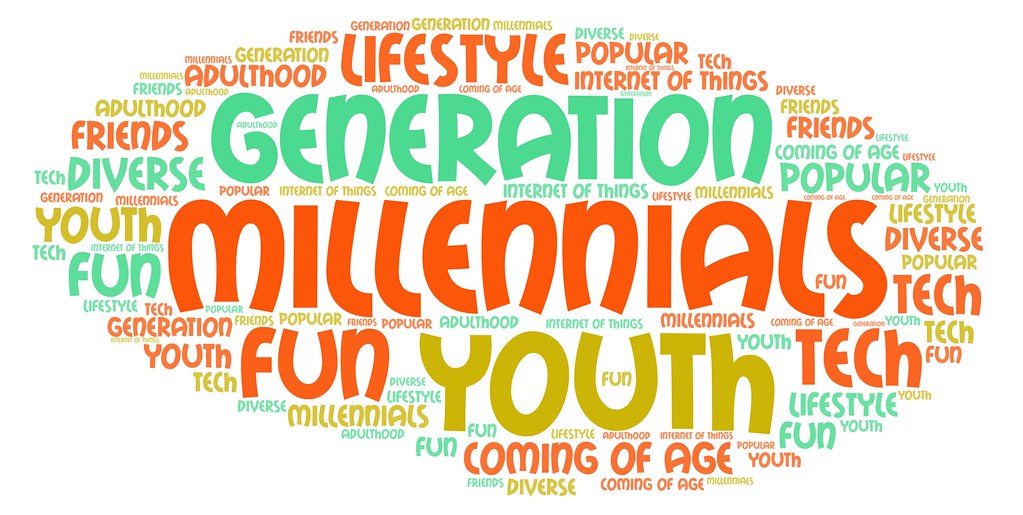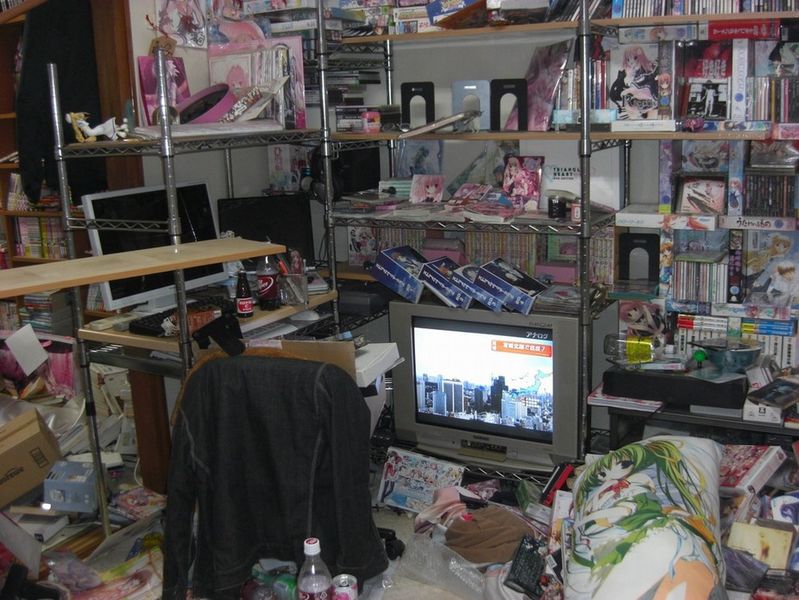MILLENNIALS: WHO ARE THEM AND HOW TO INCREASE THEIR WELLNESS

Millennials, or Y generation, were born between 1980 and 2000, they’re also known as the three C generation: Connected, Confident, open to Change. There have been a lot of research to get to this definition and understand who really are millennials. The first ones to give this definition were Neil Howe and William Strauss, who considered the period between 1982 and 2004. Millennial Marketing has established the time frame between 1977 and 2000 and the Pew Research Center has diminished the amount of time fixing it between 1981 and 1996. There are then conflicting opinions, but one or three years of difference don’t matter that much in this case.
To understand millennials, we do not have to concentrate on the time gap but rather on the range of the events that have characterized the transition from the eighties and the noughties. With reference to the last twenty years the “Short century” (Eric Hobsbawm), that just after 1980 has accelerated to the point of becoming even “very” short.
From the vhs to the dvd: a speeding up of technology which has transformed our modus vivendi (way of living). From the Cold War to the Twin Towers: a geopolitical shock which has dissolved the traditional values and categories of our mind. The three C generation has been affected by transformation so suddenly as to making it impossible to leave room for reflection.
THE THREE C: CONNECTED, CONFIDENT, OPEN TO CHANGE
The Y generation has developed in this darwinian context. We have to start from the historical-philosophical and geo-political analysis to understand millennials. A generation which was born among the crisis, grown up with the upheaval of the scenarios and matured through cultural, political, social, economical and technological changes. The very change, the methanoia, represents the strength of a versatile and quick generation, which is physiologically prepared to any occurrence. As we were saying, the three C generation: Connected, Confident, open to Change. Fundamental qualities nowadays, in a society which is constantly connected, which asks for a positive and propositive image, which continually changes and transforms itself.
Despite all of these qualities, nobody within historians and sociologists, have made an encouraging model of this generation. From the studies concerning this field, it turns out that this is a lazy and narcissist generation, incapable of affecting the current events. This is an untrue statement. When it’s compared to the seventies generation, it is additionally disgraced, because the latter is seen as the archetype of social and civic dedication.
Who are millennials, then? The misunderstood beginners of a new era or the accursed poets of a new decadentism? At the moment, the balance weights in favour of the second option. Lazy, politically disengaged, smartphones-addicted; these are just a few labels put to millennials. In a paper from 2013 on the Time, they are described as so narcissist and full of themselves, to the point of being defined the “me me me Generation“.

VIDETUR ERGO SUM
Epithets are in this case linked to a negative vision of an entire generation, a bad one… according to sociologists. Obviously, there are a lot of flaws, and making a list would take too long, we will just analyze the three C to make the point about the pars destruens of our study. Connection has dangerously become hyperconnection and usually pathological addiction. The society’s hyper technological evolution, cuts out everyone who isn’t that technological. Moreover, this dependence is extremely connected with necessity.
Visibility appears to be a necessity as well, in a world which demands it as a basic requirement (some times ago nobody would have to put their photo on the CV) to exist. Videtur ergo sum, without taking into consideration that it may become a necessity for those who have to live in a depersonalized society where one is a number more than a person. Regarding change,we have to consider a double significance too: the lack of schemes and positions, and on the other hand the capacity to evolve the mind and to follow the events without being excluded from them, or worse, overwhelmed by them.
We all agree that the twentieth-century ideals haven’t inspired millennials, but at the same time we all agree that those ideologies were dead by the time millennials were born, or mature enough to understand them. One can’t plant a water lily in the Bajkal Lake and expect it to bloom as if it were at the Comors.
MILLENNIALS, A GENERATION IN SEARCH OF STABILITY
Where there’s a pars destruens there’s also a pars construens, because to understand millennials we may analyze their qualities too. First of all, their capacity to adapt to different situations: “They soon had to come to terms with precarity, so they developed a great inclination to team-working” (Alessandro Rosina). Another significant quality is the capacity of sharing, a real pillar of this generation, specifically of the younger range. It is natural for them to share thoughts, projects and passions. It’s from their experience that rooms for coworking or sharing economy strategies are born. Furthermore, they are the first generation to be global, multiethnic, multilinguistic and transcultural.

We have to distinguish two different age groups, in an incomplete manner, but essential to understand the unease felt by youngsters. If the ones born in the 80s-90s found their own way with some effort, the ones born in the 90-2000 find it difficult to reach stability. They carry the flag of failure, the label of laziness and the weight of a decaying society. Is it all because of them though? Maybe their only fault were to be born in a society which is a parody of itself, which is an obstacle to culture and human relationships, in favour of profit, and which transform humans into mere numbers. Who other than adolescents, now neo adults, would have been victim of this silent conscience and feeling’s massacre?
ECONOMIC WEALTH SOCIAL MALAISE
Growing up as digital natives wasn’t easy for these guys, pioneers of a sperimental digital world… everybody knows that the first serie of products is the most failing one, let alone when we have to deal with human beings. One may wonder what has been made in favour of these adolescents until now, catalogued but not helped, suffered but not supported nor instructed. Posterity will judge? In this case the trial is up to contemporaries, and I wouldn’t talk about trial as we do possess both remedies and time to intervene. We are society, and the life of the younger ones is in our hands, everything depends on how we indend to use them.
If neurological pathologies and psychopathological tendencies rise among adolescents, it would be necessary to wonder why such things happen, and we should find a remedy. We are the wealth society (not so much anymore) and the malaise society (socially and emotively). Regarding this topic, we might read about the more frequent unease’s tipologies in adolescents and post-adolescents (so unwilling to enter the adult age): the difficulty to deal with emotions and the drugs’ abuse. An usual response to emotional unease is the social withdrawal.
TECHNOLOGY PRESENCE, PARENTS ABSENCE
Youngsters start with giving up sports and end up with giving up school too, spending their days in front of a computer. They prefer to get away from the world, avoiding to explode. For what concerns drugs, they lead to a worrying phenomenon which is to say the programmed loss of control. “The fact is, that every young (but also adult) who develops an abuse phase, doesn’t chose that to feel worse, to lose stability, but to maintain the only stability possible for them” (Federico Tonini).

Well-established the adolescents’ malaise, we have to ask ourselves how to remedy and how to create wellness for these guys. The first thing that the new generations lack, is certainly presence. We most of all refer to parents absence, who with the help of new instruments found new ways to stay away from their children. In these new absence typologies, presence is more and more guaranteed by technology.
How much time do youngsters spend using a phone or a computer and most importantly, how much time do their parents spend in the same way? A terribly recurring statement in nowadays parents is: with a computer my child is invisible and inaudible. Pity that for children and adolescents being seen and thought by their parents is a primary need. When we let them alone with these devices they dissociate themselves, a state that could be normal, but which danger depends on its length.
CONCLUSION
An absolutely reversible situation: no child prefers playing with a computer more than playing with their parents. Moreover, there still are lots of adolescents who prefer direct personal relationships rather than the ones hidden by a technological device. They are especially the ones who received the right amount of pattention by their parents and who learned how to dialogue and how to relate to the others. Everything depends on the availability of parents to play their important role.
Do you need an online naturopathic consultation? Click here.



